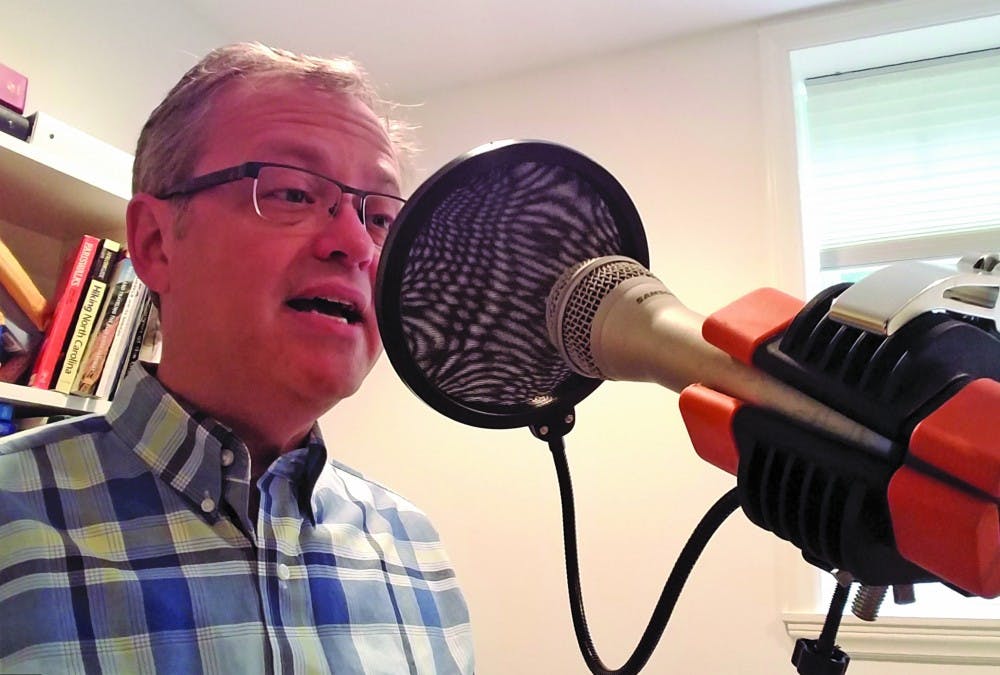“That story of the persecution of an internal 'enemy' ... is a story that’s very personal for me and very powerful,” Muller said. “I think I came to see connections between the way in which Japanese-Americans were scapegoated and the way in which my own family had been scapegoated in Germany.”
After the 1941 Japanese attack on Pearl Harbor, the U.S. government labeled all Japanese-Americans as a threat to the state. Forced to give up their homes and businesses, about 115,000 people with Japanese heritage, mostly living on the west coast, were transported to ten concentration camps around the country.
At these concentration camps, the Japanese-American internees experienced isolation, the harsh climate of western and southwestern states and a penal environment with armed guards, barracks and barbed wire.
These daily hardships are exactly what Muller wants to portray in his podcast. Differing from his scholarly articles, Muller’s podcast, as well as his books, strays from the legal issues related to Japanese-American internment and delves into the everyday stories of the internees.
“What I want to do is take you beneath those big ideas, down to the windswept grounds of the camps where 115,000 different people lived their 115,000 different lives under common conditions of racial confinement,” Muller said in his introductory episode, available now on the Scapegoat Cities website.
Holning Lau, the law school’s associate dean for faculty development, said Muller’s podcast is accessible and inclusive of groups other than just scholars.
“I think Eric really has a gift for taking this research that is very rigorous from an academic standpoint and presenting it in a way that is engaging to audiences beyond academia,” Lau said.
Since the spring, Muller has produced eight podcast episodes. He released the introductory episode in July and will release the first two storytelling episodes on Sept. 6. The rest of the episodes will be released bi-weekly, and Muller plans to eventually produce a total of 10 episodes.
Tom Ikeda, founder of a Japanese-American internment memorial organization called Densho, said he hopes listeners will draw connections between the prejudice against Japanese-Americans during World War II and the prejudice against other groups in America today.
“Professor Muller highlights these stories from a group that was viewed as suspicious and dangerous, and yet as American as any other group,” Ikeda said. “My hope is that listeners of the podcast will be able to see the similarities to immigrants and American Muslims today.”
Muller said the best way to prevent dark history — such as the racially-charged persecution of Japanese Americans — from happening again is to understand it as deeply as possible.
“If you want something to not happen again, you have to know what happened,” Muller said. “You have to not just know what happened, but you have to know why it was so devastating to the people it touched.”
To get the day's news and headlines in your inbox each morning, sign up for our email newsletters.
university@dailytarheel.com



